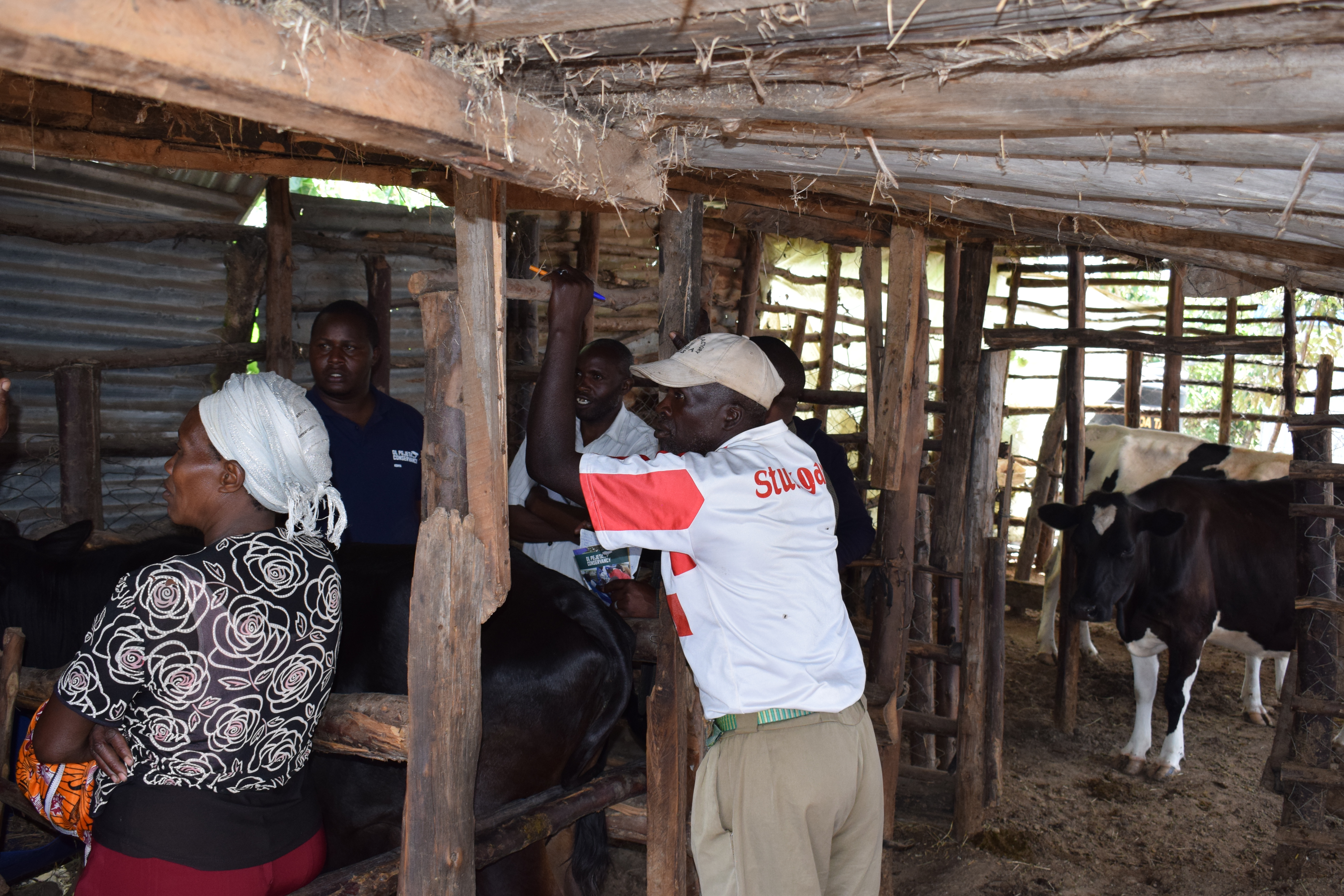

Livestock plays a critical social and economic role in Laikipia – over 50% of the land is under livestock production. This building block aims to support local rural communities increase livestock productivity whilst reducing environmental damage. The approach supports livelihoods as well as addresses key threats to biodiversity.
Livestock extension services improve skills and knowledge in all aspects of livestock husbandry and natural resource management. Artificial insemination services are provided at affordable prices to improve cattle quality and can demand higher prices. Training and support are provided on:
- Husbandry – livestock disease management, health care, administration of drugs to prevent disease.
- Resource management – water and land management including best practice grazing management to support livestock and reduce land degradation.
- Alternative micro-enterprise – aimed at women and youth, support in establishing enterprises such as poultry and beekeeping.
Trained farmers are encouraged to share their knowledge and skills with other community members. This approach means more people are reached. Livelihoods are enhanced as well as building support for conservation through benefit-sharing.
- Community engagement – building strong relationships with local communities to engage in the initiative and ensure the services meet their needs.
- Needs driven design – ensure extension services are designed in such a way that they address the needs of and are important to the pastoralist communities.
- Trusted engagement with communities – important to build strong relationships with regular dialogue, to listen to their needs, and provide opportunities for feedback.
- Address the whole value chain – need to understand the whole chain, where there might be gaps, and how they can be addressed. For example, access to drugs emerged as an issue as the current supply was a very long distance away and unaffordable. We supported communities to access micro-finance, and facilitated local and fair priced access to drugs.
- Promote collaboration and knowledge-sharing – encourage farmers’ groups to work together, share learning from training with their peers and neighbours. This collective action also had benefits of greater buying power through economies of scale.